- Home
- Robert Rankin
The Da-Da-De-Da-Da Code Page 7
The Da-Da-De-Da-Da Code Read online
Page 7
‘And this was in the seventeen nineties?’ said Jonny.
‘Apparently so. The first documented case of a mental patient who was convinced that his thoughts were being tampered with by an “Influencing Machine”. They threw him into Saint Mary of Bethlehem Hospital, the original Bedlam. He was in there for twelve years. Lucid for most of the time, but, as with most mental institutions, if you’re not mad when you go in, you’ll be mad by the time they let you out. If they ever let you out.’
‘What about your brother?’ said Jonny.
‘He’s in the Special Wing at the Cottage Hospital,’ said Ranger Hawtrey. ‘And I’ll tell you this: if I ever meet that loon who did for Doctor Archy, I’ll shake him by the hand. That doctor treated my brother very badly.’
What a very small world it is, thought Jonny. ‘But tell me more about this Air Loom,’ he said. ‘I’m fascinated by this. It’s at least a hundred years before its time. You can almost picture someone actually building something like that in the late Victorian era, but the seventeen nineties, no way to that.’
Ranger Hawtrey shrugged. ‘And so I have tinfoil inside my cap just to be on the safe side. Perhaps there was an Air Loom, perhaps the CIA and the British Secret Service have modern-day equivalents. I just don’t know. I’d like to believe that my brother isn’t mad, but then wouldn’t anyone?’
Jonny Hooker nodded. ‘Actually I have heard of Count Otto Black,’ he said. ‘He’s some kind of unkillable supervillain who turns up again and again century after century. Or so I read somewhere. But I appreciate your candour, confiding all this to me, a total stranger.’
‘I trust you,’ said Ranger Hawtrey. ‘Which is to say that I told you because I knew you wouldn’t laugh.’
‘You did? How did you know that?’
‘I just did.’ Roger Hawtrey stuck his hand out to Jonny. ‘Shake?’ he said.
‘Shake,’ said Jonny, and he shook the ranger’s hand.
‘And thank you for killing Doctor Archy,’ said Ranger Hawtrey.
‘What?’ went Jonny, and he fell back in horror.
‘I won’t turn you in.’
‘You recognised me?’
‘Not you. Well, not at once. It was the uniform I recognised. You’re wearing my old uniform. I figured that you’d found the key under the flowerpot, gone into the hut, found the uniform, then we turned up, so you concocted the story about being at college.’
‘So you knew all along,’ said Jonny.
‘And I know that you’re not a dangerous madman. Did you kill Doctor Archy, by the way?’
‘No,’ said Jonny, ‘I didn’t. I punched him and escaped through the window of his office, but I certainly didn’t hit him hard enough to kill him.’
‘I thought not.’
‘What do you mean, you thought not? When did you think not?’
‘When I saw your face come up on the television. You see, I saw the drowning child, too.’
‘You did?’ said Jonny. ‘You did?’
‘I saw it. It was there and then it wasn’t. They did drag the pond to make sure, but there was no body. But I did see the child.’
‘Then perhaps you’re as mad as I am.’
‘I’m not mad,’ said Ranger Hawtrey. ‘And nor, I suspect, are you.’
‘Ah,’ said Jonny. ‘Well, we’d probably best not go into that in any detail. But you’re not going to turn me in?’
‘Certainly not. You’re the most exciting thing that’s happened in this park since I’ve been working here.’
‘Thanks a lot,’ said Jonny. ‘But what about your boss?’
‘Ranger Connor wouldn’t recognise his own face in a mirror. And I reckon he’s going to get sacked pretty soon. He’s a bit too free with his fists. Always looking for an excuse to employ his Dimac.’
‘I can vouch for that,’ said Jonny.
‘He’s instigated a dress code for people using the park,’ said Ranger Hawtrey. ‘Quite unofficially, of course. If he sees some young bloke in sportswear he chucks them out of the park.’
‘But surely a park is the kind of place were you can wear sportswear?’
‘You’d think so, wouldn’t you? But he hates chavs.’
‘Who doesn’t?’ said Jonny.
‘So the park is pretty much a chav-free zone. And if they show up again after he’s barred them, he gives them a sound roughing-up.’
‘Part of me is starting to really like him,’ said Jonny. ‘Shall we stroll on?’
‘Are you sure you don’t want to listen to They Might Be Giants some more?’
‘No,’ said Jonny. ‘Thank you very much. And thank you for not turning me in and thank you for your conversation. You’ve given me much to think about.’
*
Ranger Hawtrey and ‘Ranger Chicoteen’ strolled on together.
And there was quite a ruckus going on in Jonny’s head. An internal dialogue, unheard and unguessed at by Ranger Hawtrey.
‘We’d best get out of here,’ said Mr Giggles. ‘This young loon will turn you in at the first possible opportunity.’
‘No he won’t,’ said Jonny.
‘Oh yes he will. He’s just waiting until they’ve posted a reward.’
‘I’m not worried about it,’ said Jonny. ‘It’s that voice on his iPod that worries me.’
‘And what voice was that?’
‘Interesting.’
‘What?’
‘You didn’t hear it.’
‘Didn’t hear what? A voice? What voice?’
‘I’m sure that if I find out, you will be the first to know.’
‘What did it say, this voice?’
‘I’m not telling you.’
‘You can’t have secrets from me, Jonny.’
‘It would appear that I can.’
‘Tell me, did you get one of these?’
‘What?’
‘One of these?’ The voice belonged to Ranger Hawtrey.
‘One of what?’ Jonny asked.
‘One of these.’ And Ranger Hawtrey fished an envelope from a jacket pocket. He seemed to have so many things in his pockets: iPod, oversized red gingham handkerchief and now an envelope. Golly.
‘It’s a competition thingie,’ said Ranger Hawtrey. ‘Although I can’t understand how exactly you win whatever it is that you win.’ He opened the envelope and displayed its contents to Jonny.
Jonny laughed, which was something he rarely did. ‘That,’ said he, ‘is, indirectly or directly, I’m not certain which, the reason why I’m in all the trouble I’m presently in. I determined that I would crack the Da-da-de-da-da Code and win whatever there was to be won, and my life, crap as it was, has become ten times as crap since then.’
‘The Da-da-de-da-da Code,’ said Ranger Hawtrey. ‘That would make a good name for a book.’
‘Yeah, right,’ said Jonny. ‘With me as the hero.’
‘Well, I don’t know about that. But what do you think about the letter?’
‘I think that I will crack the code,’ said Jonny. ‘I think that, given all that’s happened to me so far, it might even be important that I do crack the code.’
‘Good on you,’ said Ranger Hawtrey. ‘Perhaps we could work together on it.’
‘No,’ said Jonny. ‘I don’t think so. It’s not that I’m greedy for whatever the prize is and unwilling to share. It’s just that you could get yourself into as much trouble as me.’
‘You cannot attribute your troubles directly to your search,’ said Ranger Hawtrey. ‘It could just be coincidence.’
‘I’m not sure that I believe in coincidence.’
‘All right. If you don’t want my help, tell me at least how you intend to go about cracking the code.’
‘Do the obvious,’ said Jonny. ‘Trace where the letter was printed. That might be all that’s necessary to win the prize.’
‘Do you really think so?’ Ranger Hawtrey looked all excited.
‘You look all excited,’ said Jonny Hooker.
�
��Well, of course I do,’ said Ranger Hawtrey, ‘because I know where it was printed.’
11
‘All right,’ said Jonny Hooker. ‘Perhaps I am prepared to give the concept of coincidence the benefit of the doubt. You know where the letters were printed. How do you know that?’
‘Because they were printed right here in the park. In the museum.’
‘How do you know that? Did you see them being printed?’
‘No, but I recognised the typeface – it’s very distinctive, I’m sure you agree.’
‘It’s somewhat old-fashioned,’ said Jonny. ‘I noticed that.’
‘It was done on the Protein Man’s printing machine.’
‘The Protein Man?’ asked Jonny. ‘He’s not one of the Air Loom Gang, is he? A minion of Count Otto Black?’
Ranger Hawtrey made a face. ‘His name was Stanley Owen Green,’ said he, ‘and he was a pamphleteer. Born in nineteen fifteen and died in nineteen ninety-three. He was famous in his way. He had this bee in his bonnet about sex, about how too many people were having too much of it too often, and why. He developed this philosophy that he called “Protein Wisdom”. It was based on this simple principle: that children need protein in order to grow, but adults don’t, and the excess protein in their systems fuels excess sexual activity. His slogan was “Less Lust from Less Protein” and he took to the streets of London to preach his message.’
‘And I bet he didn’t get too many converts,’ said Jonny.
‘Not too many. Especially as he began his preaching in nineteen sixty-eight, in the heyday of the swinging sixties. He used to walk up and down Oxford Street, wearing sandwich boards and distributing his pamphlets, which were entitled ‘Eight Passion Proteins With Care”. And he did that right through until nineteen ninety-three, when he died. And when he died, his relatives bequeathed his printing machine to the museum. The moment I saw this letter I recognised the type – there’s samples of his stuff in the basement store. There’s no mistake, I’m sure.’
‘Incredible,’ said Jonny. ‘Incredible.’
‘Stuff and nonsense,’ said Mr Giggles. ‘Let’s make our getaway now.’
‘Do you think I could see this machine?’ Jonny asked.
‘If we can come up with some legitimate-sounding reason for going into the basement.’
‘Getting into the basement will not be a problem,’ said Jonny.
‘So we’re going to work on this together, then?’
We’ll see,’ said Jonny. ‘We’ll see.’
Jonny hadn’t been into Gunnersbury Park Museum since he was a child. As is often the way with folk and museums. But the beauty of museums, well, some museums, is that they withstand the slings and arrows of outrageous management and remain the same.
Tiny magical time capsules.
You were there and you are there again and virtually nothing has changed. A few bits of necessary renovation, updated security systems, a new ticket booth, something ‘hands-on’ for the modern kiddies. But for the most part—
‘Unchanged,’ said Jonny. And he stood before the transport collection (having sneaked past the lady on the desk with his head down), gazing up at the hansom cab. ‘It’s just the same. The hansom cab. Did you know that this cab was still in service in Ealing up until nineteen thirty-three?’
‘I did,’ said Ranger Hawtrey, who did.
‘And the pony phaeton,’ said Jonny. ‘Don’t you just love the pony phaeton?’
‘Not as much as I love the Rothschilds’ town and travelling carriages.’
‘It’s wonderful.’ And Jonny was entranced. There had been a time, oh so long ago, when he had been happy. When he had been a child and when his daddy had still been alive. His daddy had always loved museums. In fact, every time the Hooker family went on holiday, to some English seaside resort or another, it would inevitably turn out that the real reason for this particular resort being chosen by the daddy was because the daddy had ascertained that there was some particularly interesting private museum or another that he felt would be interesting and educational for his family to visit.
And Jonny had loved those visits.
He had loved his daddy, and his daddy’s enthusiasm for the wonders of old museums had worn off on his son.
And his daddy had a certain technique.
Jonny’s daddy knew, as most people who know anything about museums know, that only about one-third, if that, of a museum’s collection is ever on display to the public. The rest languishes unseen in storerooms beneath. In fact, that is where the really interesting stuff is. And Jonny’s daddy had this technique.
On the Monday of the holiday he would take Jonny to the museum. He would lead Jonny around, speaking with knowledge of all those things that he had knowledge of. And then he would fall into conversation with the museum’s curator. And employ his silken tongue. Because the daddy did have a silken tongue. Something that Jonny did not appear to have inherited. The daddy would speak of his son’s interest in museums and the sad fact that so much of a museum’s collection remains forever unseen by the public. And how future generations must learn the wonder of museums, and how much it would impress itself upon the mind of his little son here (the lad) if he could be granted a glimpse of the hidden collection that lay beneath.
And it was a very hard and ill-favoured curator who was not moved by the daddy’s words and who, at least by the Wednesday, had not granted the daddy and the lad a private viewing of the wonders that lay in the storerooms beneath.
Jonny could recall with perfect clarity a museum in Bournemouth where he had not only viewed, but been allowed to hold (‘the lad would really like to hold that’) a shrunken human head. The product of the Jivaro tribe of the Amazon. The head was supposedly that of a Jesuit missionary, but Jonny had suspected that it was nothing of the sort because it had pierced ears. Pierced ears. The shrunken head had pierced ears. And that had stuck in Jonny’s memory, that and the way the hair felt. Human hair on a dead shrunken head. Jonny remembered how, after his father had profusely thanked the curator for taking him and ‘the lad’ below, they had left the museum and walked out hand in hand into the bright summer sunlight. Travelling from one world to another.
Heavy stuff.
‘Are you okay?’ asked Ranger Hawtrey. ‘You’ve gone all faraway and misty-eyed.’
‘Memories,’ said Jonny.
‘A museum will do that to you.’
‘It certainly will.’
‘We’ll have to ask Joan on the desk if we can borrow the keys for the basement.’
‘You have a cover story then, do you?’
‘Not as such,’ said Ranger Hawtrey. ‘I’m not very good at this sort of thing.’
‘You could get her chatting and I could steal the keys.’
‘It’s some sort of a plan, I suppose.’
‘Or we could just go down into the basement without nicking her keys at all.’
‘Don’t quite follow you there,’ said Ranger Hawtrey.
‘We could go down the secret passage.’
‘Really not following you there.’
‘You mean you don’t know about the secret passage?’
Ranger Hawtrey made another face. ‘Clearly not,’ said he. ‘But then if it is secret—’
‘Sound point,’ said Jonny. ‘The curator who showed it to me and my dad when I came here as a child wasn’t very good at keeping a secret. Or at least he wasn’t very good at keeping one from my daddy.’
There’s always a secret passage. Or a priest hole. Or a skeleton walled up in a cellar.
There always is.
And that is a tradition, or an old charter, or something.
The secret passage in Gunnersbury Museum is …
‘Well, I never expected that,’ said Ranger Hawtrey. ‘Who’d have suspected that the entrance to the secret passage would be there?’
‘Who indeed?’ Jonny led the way. He shone the torch along the brickwork.
‘Where did you get that torch?’ asked
Ranger Hawtrey.
‘Out of your pocket,’ said Jonny.
‘Good call,’ said Ranger Hawtrey. ‘Where does this secret passage lead to?’
They emerged from the secret passage.
‘And who would have expected that?’
‘The secret is probably knowing when to stop,’ said Jonny.
And it probably is.
‘Please lead me to the printing machine,’ said Jonny.
And Ranger Hawtrey did so.
They had the storeroom lights on now, and much was as Jonny remembered.
There were the boxes that contained the remains of wooden stakes that had been driven into the bed of the Thames at Brentford as part of the defences against the army of Julius Caesar. Some beautiful swords that were crafted in Hounslow, in the days when Hounslow was famous for the crafting of swords. There was a famous parrot in a glass dome and a painted portrait of the first man ever to open an umbrella in London, a famous Brentford man. And there was also all that remains of the Lucozade sign – the famous one that had the bottle pouring into the glass and all done with light bulbs. Each of which was famous in its way.
The printing press stood at the far end of the room, between a crate that contained the mummified remains of a two-headed giant and a working model of a perpetual motion machine.
‘Behold the printing press,’ said Ranger Hawtrey.
Jonny beheld the printing press. He beheld it up close and in detail. ‘I think you’re right,’ he said. ‘It has been used recently, And yes—’ He rooted about amidst the mechanical gubbins and brought to light a screwed-up piece of paper. ‘—one got stuck in the works. So the letters were printed here. But why here and by whom?’

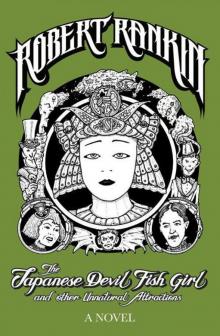 The Japanese Devil Fish Girl and Other Unnatural Attractions
The Japanese Devil Fish Girl and Other Unnatural Attractions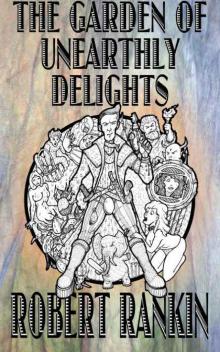 The Garden of Unearthly Delights
The Garden of Unearthly Delights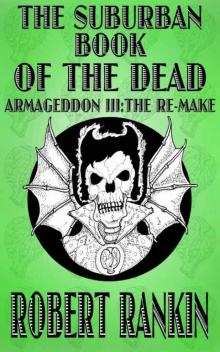 The Suburban Book of the Dead: Armageddon III: The Remake
The Suburban Book of the Dead: Armageddon III: The Remake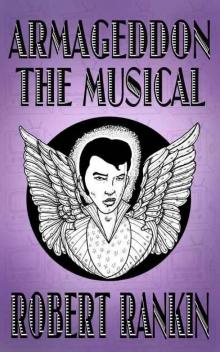 Armageddon_The Musical (Armageddon Trilogy Book 1)
Armageddon_The Musical (Armageddon Trilogy Book 1)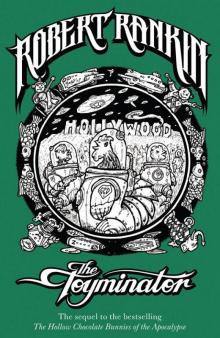 The Toyminator
The Toyminator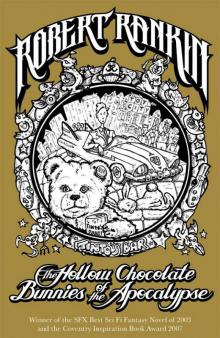 The Hollow Chocolate Bunnies of the Apocalypse
The Hollow Chocolate Bunnies of the Apocalypse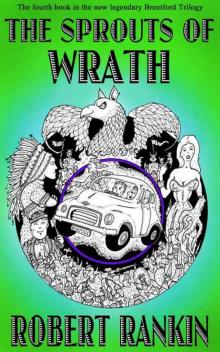 The Sprouts of Wrath
The Sprouts of Wrath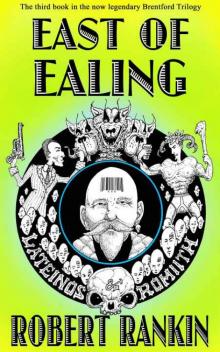 East of Ealing
East of Ealing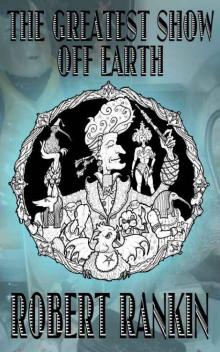 The Greatest Show Off Earth
The Greatest Show Off Earth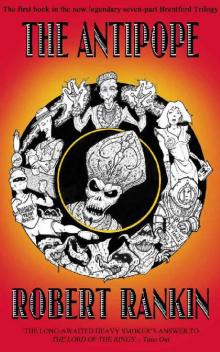 The Antipope
The Antipope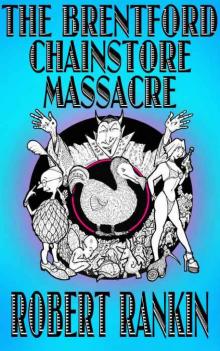 The Brentford Chainstore Massacre
The Brentford Chainstore Massacre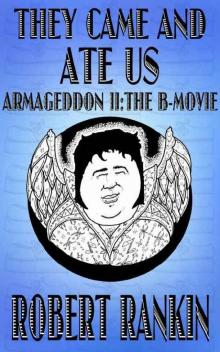 They Came and Ate Us_The B-Movie (Armageddon Trilogy 2)
They Came and Ate Us_The B-Movie (Armageddon Trilogy 2)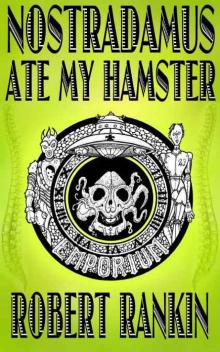 Nostradamus Ate My Hamster
Nostradamus Ate My Hamster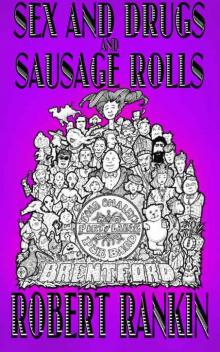 Sex and Drugs and Sausage Rolls
Sex and Drugs and Sausage Rolls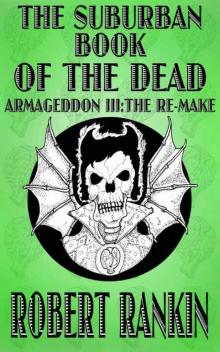 The Suburban Book of the Dead_The Remake (Armageddon Trilogy 3)
The Suburban Book of the Dead_The Remake (Armageddon Trilogy 3)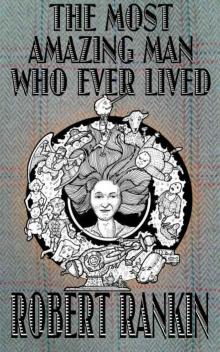 The Most Amazing Man Who Ever Lived
The Most Amazing Man Who Ever Lived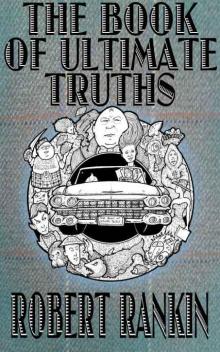 The Book of Ultimate Truths
The Book of Ultimate Truths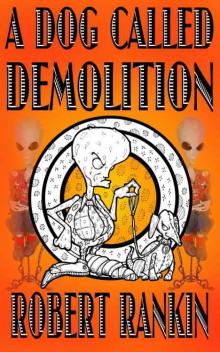 A Dog Called Demolition
A Dog Called Demolition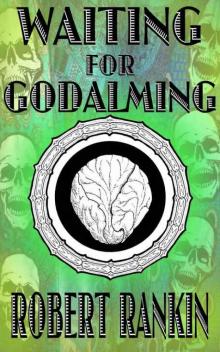 Waiting for Godalming
Waiting for Godalming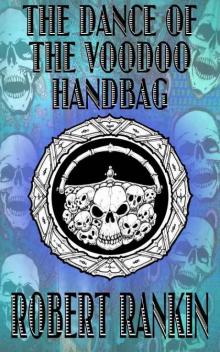 The Dance of the Voodoo Handbag
The Dance of the Voodoo Handbag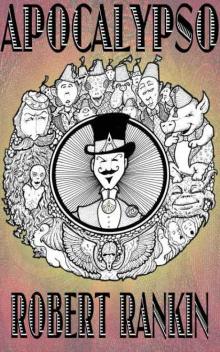 Apocalypso
Apocalypso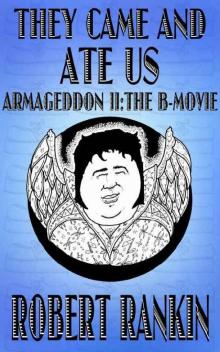 They Came and Ate Us: Armageddon II: The B-Movie
They Came and Ate Us: Armageddon II: The B-Movie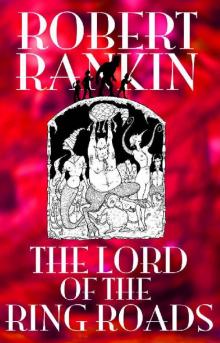 The Lord of the Ring Roads
The Lord of the Ring Roads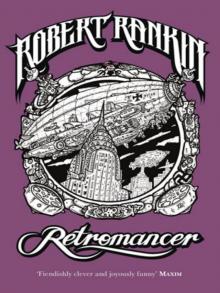 Retromancer
Retromancer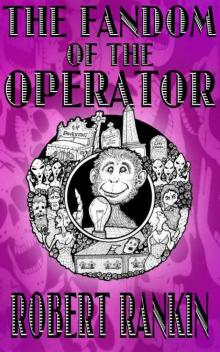 The Fandom of the Operator
The Fandom of the Operator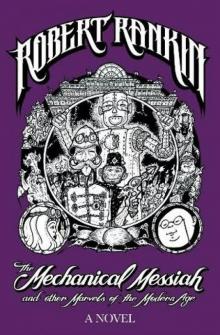 The Mechanical Messiah and Other Marvels of the Modern Age
The Mechanical Messiah and Other Marvels of the Modern Age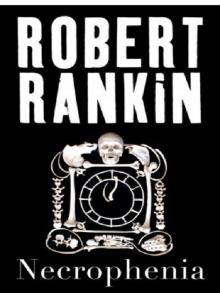 Necrophenia
Necrophenia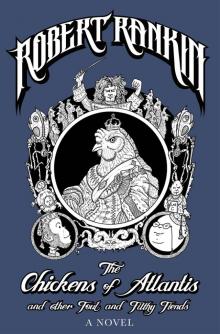 The Chickens of Atlantis and Other Foul and Filthy Fiends
The Chickens of Atlantis and Other Foul and Filthy Fiends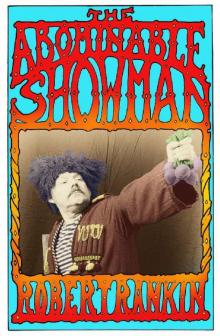 The Abominable Showman
The Abominable Showman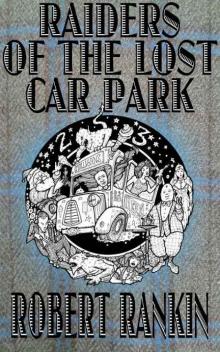 Raiders of the Lost Carpark
Raiders of the Lost Carpark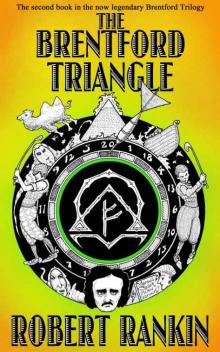 The Brentford Triangle
The Brentford Triangle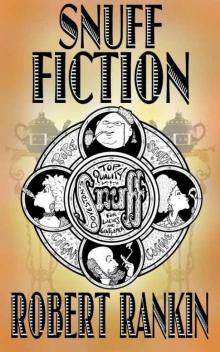 Snuff Fiction
Snuff Fiction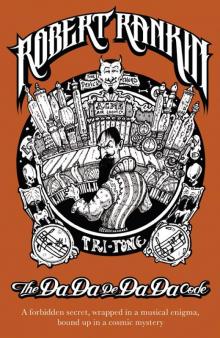 The Da-Da-De-Da-Da Code
The Da-Da-De-Da-Da Code Web Site Story
Web Site Story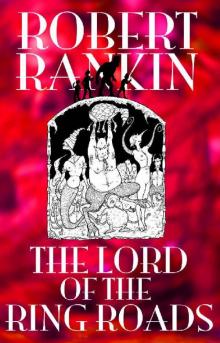 The Lord of the Ring Roads (The Final Brentford Trilogy Book 1)
The Lord of the Ring Roads (The Final Brentford Trilogy Book 1)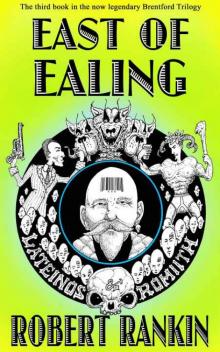 East of Ealing (The Brentford Trilogy Book 3)
East of Ealing (The Brentford Trilogy Book 3)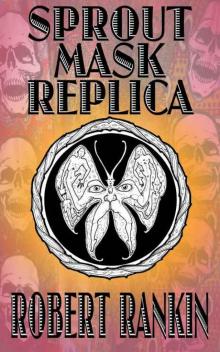 Sprout Mask Replica (Completely Barking Mad Trilogy Book 1)
Sprout Mask Replica (Completely Barking Mad Trilogy Book 1)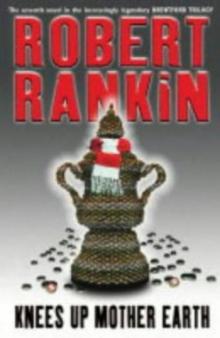 Knees Up Mother Earth bs-7
Knees Up Mother Earth bs-7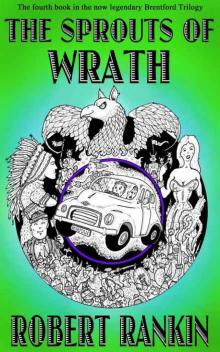 The Sprouts of Wrath (The Brentford Trilogy Book 4)
The Sprouts of Wrath (The Brentford Trilogy Book 4)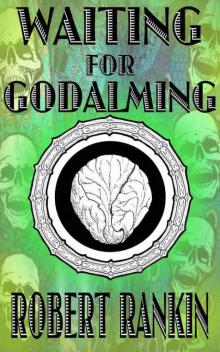 Waiting for Godalming (Completely Barking Mad Trilogy Book 3)
Waiting for Godalming (Completely Barking Mad Trilogy Book 3)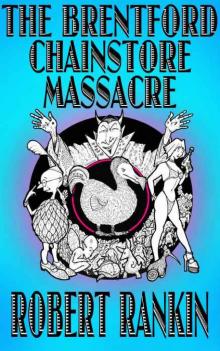 The Brentford Chainstore Massacre (The Brentford Trilogy Book 5)
The Brentford Chainstore Massacre (The Brentford Trilogy Book 5)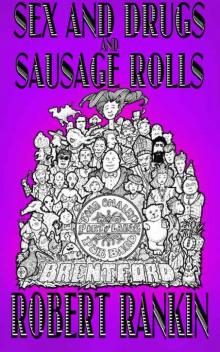 Sex and Drugs and Sausage Rolls (The Brentford Trilogy Book 6)
Sex and Drugs and Sausage Rolls (The Brentford Trilogy Book 6)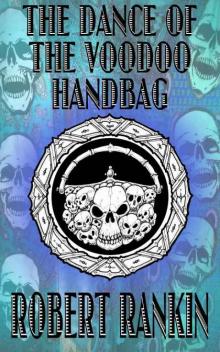 The Dance of the Voodoo Handbag (Completely Barking Mad Trilogy Book 2)
The Dance of the Voodoo Handbag (Completely Barking Mad Trilogy Book 2)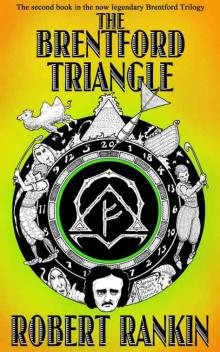 The Brentford Triangle (The Brentford Trilogy Book 2)
The Brentford Triangle (The Brentford Trilogy Book 2)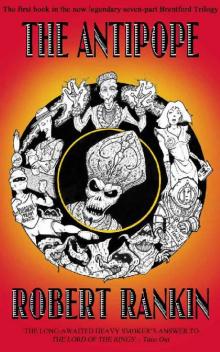 The Antipope (The Brentford Trilogy Book 1)
The Antipope (The Brentford Trilogy Book 1)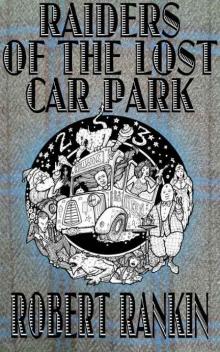 Raiders of the Lost Car Park (The Cornelius Murphy Trilogy Book 2)
Raiders of the Lost Car Park (The Cornelius Murphy Trilogy Book 2)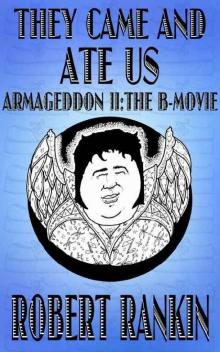 They Came and Ate Us - Armageddon II_The B-Movie (Armageddon Trilogy Book 2)
They Came and Ate Us - Armageddon II_The B-Movie (Armageddon Trilogy Book 2)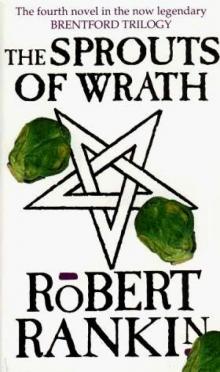 The Sprouts of Wrath bs-4
The Sprouts of Wrath bs-4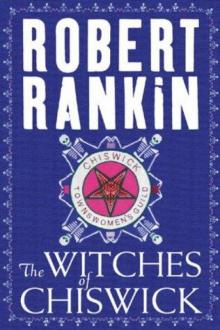 The Witches of Chiswick
The Witches of Chiswick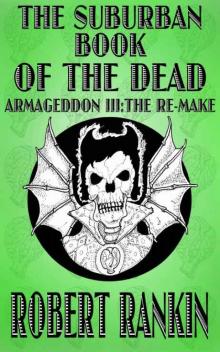 The Suburban Book of the Dead - Armageddon III: The Remake (Armageddon Trilogy 3)
The Suburban Book of the Dead - Armageddon III: The Remake (Armageddon Trilogy 3)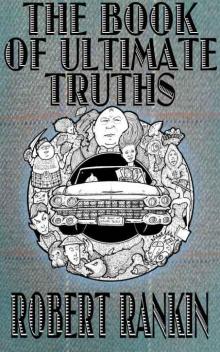 The Book of Ultimate Truths (The Cornelius Murphy Trilogy 1)
The Book of Ultimate Truths (The Cornelius Murphy Trilogy 1)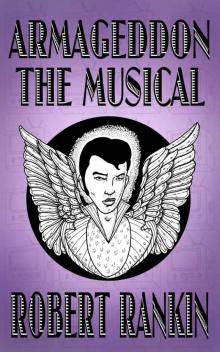 Armageddon: The Musical (Armageddon Trilogy)
Armageddon: The Musical (Armageddon Trilogy)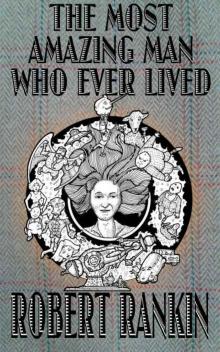 The Most Amazing Man Who Ever Lived (The Cornelius Murphy Trilogy Book 3)
The Most Amazing Man Who Ever Lived (The Cornelius Murphy Trilogy Book 3)